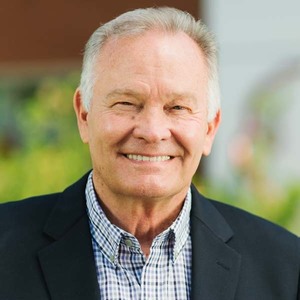Itās been over two weeks since I last shared on the Good Book Blog. That means itās time for me to share some more tidbits for life gleaned from my folks.
Ģż
Lesson #3 ā Believe in People
I grew up on a farm near a very small town in rural Iowa. Gossip is a favorite pastime of folks whose families have lived in the same limited proximity for several generations. We even had a village newspaper that listed who visited whom, when, and the hot dish they shared for dinner. Amazing. It was hard in this environment not to know the juicy details of peopleās lives, and feel compelled to pass them on.
For the most part, and to their credit, my parents held their disparaging conversations to a minimum. And as I look back on my years in the Boersma household, the overwhelming evidence points to their unflappable belief in people, especially their kids, in spite of our attempts to drive them nuts.
I shared one tradition in an earlier postĢżthat illustrates Mom and Dadās bent to look for the best in people: the wrecking of the family car. All three of us brothers (I donāt think Sis ever participated in this) managed to mangle an automotive conveyance. My oldest brother stuffed a classic Chevy into a statue in our hometown. My second oldest brother managed to live through the destruction of a number of vehicles, to my amazement and his. (We often joke that he personally retired several guardian angels in the process.)
As for my misadventure, to this day I remain touched by my dadās willingness to let me live, in spite of the bone-headed accident I managed that wintery night in 1965. While I was full of self-loathing for being so stupid, he and mom saw a good kid who was going to contribute something positive to society some day.
Somewhere in my early pastoring days, I realized that believing in people was a choice. Ministry presents all kinds of negative situations and experiences, as does any vocation. But I saw myself getting critical in heart and mind ā and God graciously challenged me to change. A consistent prayer was then and is now, āLord, help me to accept people where they are, love them, and walk with them into a life of greater obedience and joy.ā As God loves me, so must I love those around me. My desire is to be like Barnabas, whose gracious ministry to Saul (Paul) continues to this day. A worthy goal for us all, I think.
Ģż
Lesson #4 ā Focus on the Eternal
By definition of some, Iowa is just north of whatās called the āBible Beltā, a section of the mostly southeastern United States characterized as heavy on conservative evangelical Christian expression and practice. In our neighborhood, almost everyone went to church on Sunday. Though I attended public schools, nearly all my classmates and teachers were churchgoers.
The tendency of many, however, was to put on their Sunday best (clothes and behavior), but then live like any other ordinary unbeliever during the week. In other words, the integration of oneās faith and daily routine was not always evident. To my great appreciation, that was not the case in our household. My parents were Christians all the time ā period. Not perfect, but sincere in their faith in God for all of life.
We were dry farmers. That means we had no irrigation system. If it did not rain, we did not eat (yes, an overstatement for effect). You could say our life was somewhat reminiscent of the ancient Israelites who depended on the early and late rains. Mealtime prayers in the spring and summer ALWAYS included petitions for rain (āand please, Lord, no hail - or tornadoesā).
A true sign of their daily faith was their practice of tithing. Regardless of how the farm was doing, my folks gave at least 10% from the top of their income to the Lordās work. I watched their demonstration of belief that all was from God and belonged to him. I still can see the deep imprint of that commitment on my own life today, some 45 years later. As the Psalmist proclaims, āThe earth is the Lordās and all it contains, the world, and those who dwell in it. For He has founded it upon the seas, and established it upon the riversā (24:1).
There was no sacred/secular divide in my upbringing. All was from the Lord and all work was āunto him.ā We had a plaque on the dining room wall with the inscription āOnly one life, will soon be past, only whatās done for Christ will lastā - another deep impression that has not left me. Everything connects with Jesus, and itās a joy to live and learn life from that perspective. My wife and I have tried to instill that in our daughters, and weāre blessed to see them and their husbands doing the same with their children.
Ģż
May you find some encouragement from these two lessons, as I have. A few more remain. Maybe in another two weeks or so ā¦
 ½ńČÕŗŚĮĻ
½ńČÕŗŚĮĻ
.jpg)

.jpg)
.jpg)